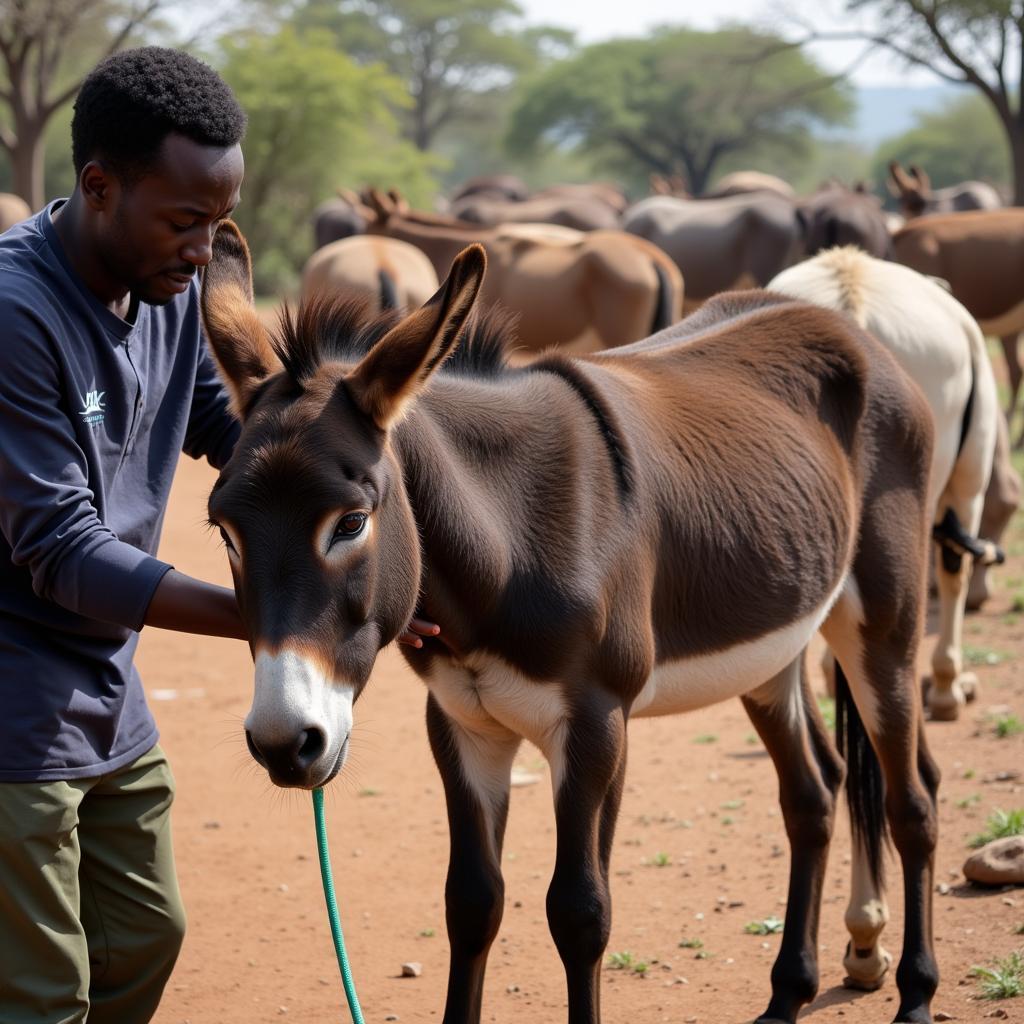African Artifacts Returned: A Journey Back Home
The repatriation of African Artifacts Returned to their countries of origin is a complex and evolving issue, sparking international debate and raising crucial questions about cultural heritage, historical justice, and the legacy of colonialism. This restitution process represents more than just the physical return of objects; it signifies a reclaiming of history, identity, and a voice long silenced.
The Long Road to Repatriation: Reclaiming Stolen Heritage
The return of African artifacts is not a new phenomenon, but it has gained significant momentum in recent years. Many African nations have formally requested the return of their cultural treasures, held in museums and private collections worldwide. These artifacts, often acquired through dubious means during the colonial era, represent a vital part of Africa’s cultural heritage. African artifacts stolen provides further context on this complex issue.
This section explores the intricate process of repatriation and the legal and ethical considerations surrounding it. The provenance of these artifacts is often murky, with limited documentation, adding another layer of complexity to the repatriation process.
What drives the demand for the return of these artifacts? It’s more than simply possessing beautiful objects. It’s about restoring a sense of wholeness to communities and nations, recognizing the tangible connection these pieces hold to their history and identity.
Why Are African Artifacts Returned So Important?
The significance of returned African artifacts goes far beyond their aesthetic or monetary value. They represent tangible links to ancestral knowledge, traditions, and spiritual beliefs. For many African communities, these artifacts are not merely objects to be displayed in museums; they are living embodiments of their history and cultural identity.
For example, the return of royal stools, masks, and ceremonial objects allows communities to reconnect with their past, reviving ancient rituals and reinforcing cultural continuity. Imagine a family heirloom being returned after decades of absence – the emotional resonance is palpable. The return of these artifacts elicits a similar sense of reclamation and healing.
The restitution of these cultural treasures also empowers African nations to control their own narratives, shaping their historical discourse and challenging the Eurocentric perspectives that have often dominated the narrative. It’s about rewriting history, giving voice to the silenced, and reclaiming ownership of their cultural heritage.
The Challenges and Triumphs of Repatriation
While there have been significant victories in the fight for repatriation, the process is fraught with challenges. Some institutions argue that they are better equipped to preserve these artifacts, citing concerns about storage and conservation in African nations. Others resist repatriation based on legal complexities and ownership disputes. African artifacts in America offers insights into the specific challenges faced within the American context.
However, these arguments often overlook the significant investments African nations are making in building world-class museums and cultural centers, demonstrating their commitment to preserving their heritage. Furthermore, the ethical argument for repatriation, rooted in historical justice and cultural self-determination, is increasingly difficult to ignore.
Dr. Ayo Adebanjo, a renowned Nigerian historian, emphasizes this point: “These artifacts are not simply objects; they are fragments of our soul. Their return is a matter of reclaiming our identity and healing the wounds of the past.”
The Future of African Artifacts: A Shared Responsibility
The repatriation of African artifacts is not just an African issue; it’s a global concern. It requires international cooperation, open dialogue, and a shared commitment to cultural understanding. Museums and institutions worldwide must acknowledge the ethical imperative of returning stolen cultural heritage.
What can individuals do to support repatriation efforts? Raising awareness, supporting repatriation initiatives, and engaging in respectful dialogue are crucial steps. Visiting museums in Africa and learning directly from African scholars and curators can further enhance understanding and appreciation of African cultural heritage.
African artifacts uk provides a focused view on the efforts and discussions surrounding African artifacts in the UK.
Professor Chika Okeke, a Kenyan anthropologist, states, “Repatriation is not about erasing history; it’s about rewriting it collaboratively, acknowledging the past and building a more equitable future for cultural heritage.”
Conclusion: Continuing the Journey Home
The journey of African artifacts returned to their rightful place is ongoing. It’s a journey of healing, reclamation, and cultural revival. As more artifacts make their way back home, African nations are empowered to tell their own stories, preserve their heritage, and shape their future. This process underscores the importance of international collaboration and the recognition that cultural heritage belongs to the people who created it. The return of these artifacts is a testament to the enduring spirit of African cultures and the unwavering commitment to reclaiming their past.
FAQ
-
What types of African artifacts are being returned? A wide range of artifacts, including sculptures, masks, textiles, ceremonial objects, and historical documents are being repatriated.
-
Who owns these artifacts? While many artifacts are held in museums, the ethical ownership often lies with the communities and nations from which they originated.
-
How long does the repatriation process take? The repatriation process can vary significantly, depending on the specific artifacts and the institutions involved, often taking years or even decades.
-
What are the benefits of repatriation for African communities? Repatriation empowers communities to reconnect with their heritage, revive cultural practices, and control their own narratives.
-
How can I support repatriation efforts? You can support repatriation by raising awareness, supporting relevant organizations, and engaging in respectful dialogue.
-
What are some recent examples of successful repatriation? Recent successful repatriations include the return of Benin Bronzes to Nigeria and various artifacts to Ethiopia, Senegal and other African countries.
-
What are the future implications of repatriation for museums globally? Museums will need to adapt to a changing landscape, focusing on collaboration and ethical stewardship of cultural heritage.
Common Scenarios
-
Researchers seeking access to repatriated artifacts: Researchers should contact the relevant cultural institutions in the African nations holding the artifacts to request access, respecting the protocols and guidelines established by those institutions.
-
Museums seeking to collaborate with African institutions: Collaboration should be based on mutual respect, equitable partnerships, and a commitment to supporting the preservation and accessibility of African cultural heritage.
-
Individuals wanting to learn more about repatriated artifacts: Resources include online databases, museum exhibitions in Africa, and scholarly publications focusing on repatriation and African art history.
Further Exploration
Explore related topics on our website, including articles on African art, cultural preservation, and the history of colonialism.
For assistance, please contact us at Phone: +255768904061, Email: [email protected], or visit us at Mbarali DC Mawindi, Kangaga, Tanzania. We have a 24/7 customer service team.

